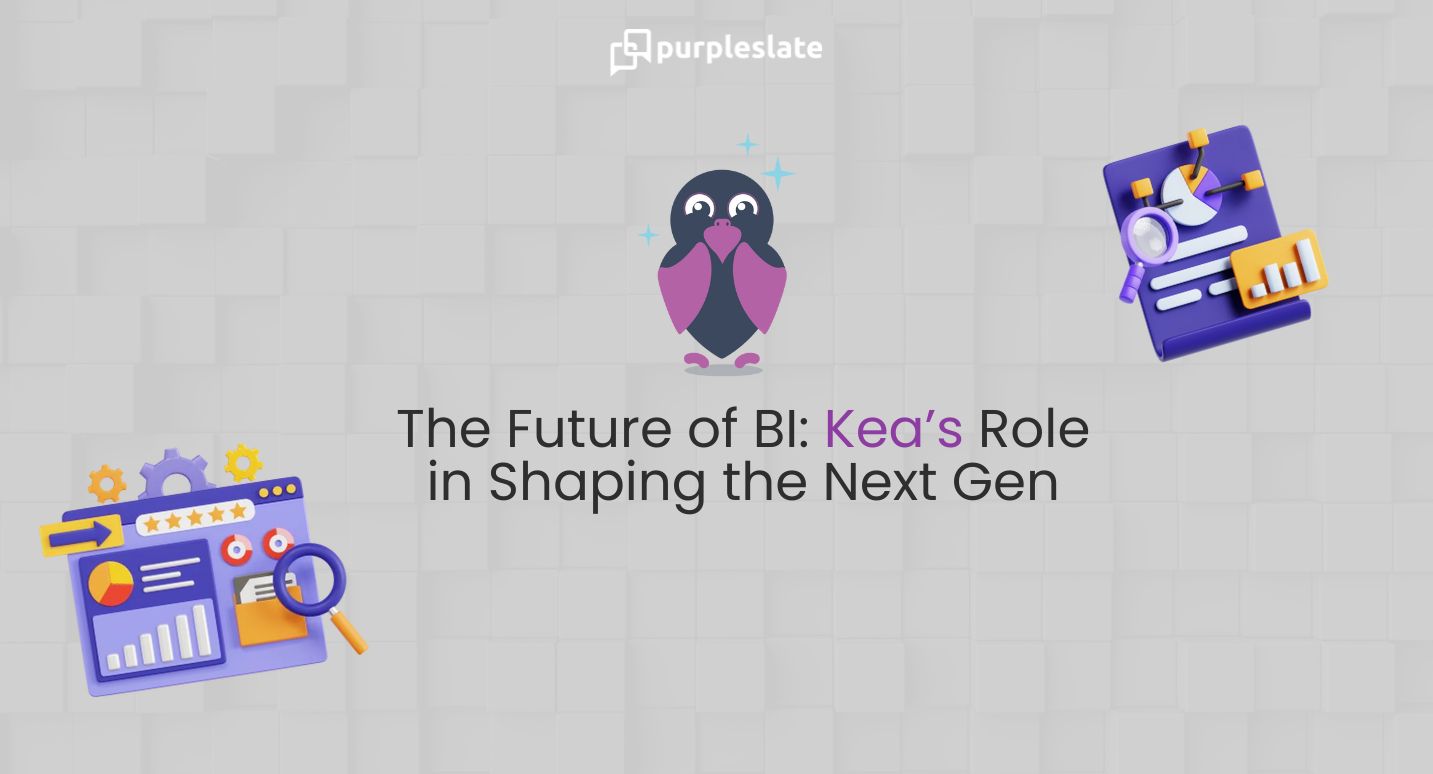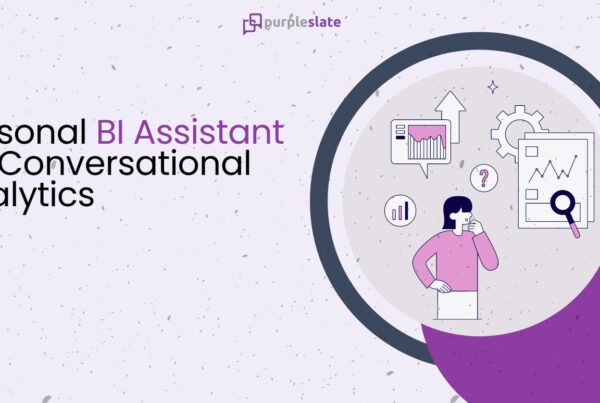
Introduction
Data – A concept that demands the utmost reverence, starting from the frontliner to the CEO of an organization. Why? Because data is the key to unlocking information. It will be ironic, nay, almost cynical to say that information is the most valuable commodity in the information era. One who holds intelligence is the undeniable master in the long run.
However, getting information from data is tough. Raw data is always the Merchant of Venice who needs his pound of flesh to grace us with the required information. And such, the demand for data analysts has always been on the rise. But you see, here is where the conundrum and data’s role as the modern equivalent of a trickster God arises. Data analysts are adept at mining information from the deepest darkest depths of data. While only its end users make sense of the information within its context. The result – Most of the times end users are left with more follow-up questions than answers. They again call upon the data analyst to mine more information trapping everyone in that vicious cycle of information access.
The future will be different. The future looks more promising. The future is mobile, contextual, and truly self-service analytics. As data volumes continue to soar and the need for actionable insights in real-time becomes paramount, businesses are increasingly turning to advanced Business Intelligence (BI) tools to unlock the full potential of their data. Among these innovative tools, Kea emerges as a game-changer, offering a revolutionary approach to data analytics through its low-code platform for Conversational Insights. In this comprehensive exploration, we delve into the evolving landscape of data analytics and uncover how Kea is poised to redefine the future of BI.
The Evolution of Business Intelligence – From Spreadsheets to Advanced Analytics
The history of data analytics and business intelligence is as old as mankind. History tells the story of Royal Scribes in the ancient city of Ur in Sumeria depending on data analytics to predict crop yields. But we are not going that far. We start with the evolution of modern Business Intelligence.
The journey of modern Business Intelligence traces back to the early days of computing when businesses relied on static reports and spreadsheets to analyze data. Over time, as technology advanced and data grew more complex, traditional BI tools emerged, offering capabilities for data visualization, ad-hoc reporting, and dashboarding. These tools provided valuable insights into past performance, enabling businesses to identify trends, patterns, and anomalies within their data.
The Early Days: Static Reports and Spreadsheets
The roots of Business Intelligence can be traced back to the early days of computing when businesses relied on static reports and spreadsheets to analyze data. These reports provided valuable insights into past performance, allowing businesses to track key metrics, identify trends, and make informed decisions. However, the process was labor-intensive and time-consuming, often requiring manual data entry and manipulation.
Emergence of Traditional BI Tools
As technology advanced and data volumes grew, traditional BI tools began to emerge, offering more sophisticated capabilities for data analysis and reporting. These tools introduced concepts such as data warehouses, OLAP (Online Analytical Processing), and multidimensional analysis, enabling businesses to gain deeper insights into their data. With features like ad-hoc querying, dashboarding, and data visualization, traditional BI tools provided a more interactive and user-friendly approach to data analysis.
Shift Towards Self-Service BI
In recent years, there has been a notable shift towards self-service BI, driven by the growing demand for agility and flexibility in data analysis. Self-service BI tools empower business users to explore and analyze data on their own, without relying on IT or data specialists. These tools typically feature intuitive interfaces, drag-and-drop functionality, and natural language querying, making data analysis accessible to users of all skill levels. By putting the power of BI into the hands of business users, self-service BI tools have democratized access to data and fostered a culture of data-driven decision-making within organizations.
The Rise of Advanced Analytics
In parallel with the evolution of traditional BI, there has been a growing emphasis on advanced analytics techniques such as predictive analytics, machine learning, and artificial intelligence. These techniques enable businesses to go beyond descriptive analytics (what happened) and diagnostic analytics (why it happened) to predict future outcomes and prescribe actions. By leveraging advanced analytics, businesses can uncover hidden patterns, detect anomalies, and make proactive decisions based on data-driven insights.
The Future of BI: Towards Real-Time Agile Insights
Looking ahead, the future of Business Intelligence lies in real-time insights accessed in a jiffy. Businesses continue to operate in an increasingly dynamic and fast-paced environment and a key measure of success will be the ability to access timely and actionable insights. BI tools of the future will leverage technologies such as in-memory computing, streaming analytics, and AI-driven automation to deliver real-time insights on-demand.
As the pace of business accelerates and the volume of data explodes, traditional BI tools will start to show signs of strain. They will struggle to keep pace with real-time data streams, often leading to latency issues and outdated insights. Moreover, the complexity of these tools makes them inaccessible to non-technical users, limiting their potential impact across the organization.
Enter Kea: Revolutionizing BI with Conversational Insights
Kea represents a quantum leap forward in the evolution of BI. At its core, Kea is a low-code platform that leverages the power of AI and natural language processing to enable users to interact with their data through intuitive conversations. By eliminating the need for complex queries and cumbersome dashboards, Kea democratizes access to analytics, empowering users of all skill levels to extract insights and make data-driven decisions.
Key features of Kea include:
- Conversational Interface: Kea’s conversational interface allows users to query their data using natural language commands, making data analysis as simple as having a conversation. Whether it’s asking for sales trends, customer segmentation, or predictive analytics, users can interact with Kea in the same way they would with a human analyst.
- Real-time Insights: Unlike traditional BI tools that rely on batch processing and scheduled reports, Kea delivers real-time insights on-demand. Whether you need to monitor key performance indicators (KPIs), track customer interactions, or detect anomalies, Kea provides up-to-the-minute visibility into your data, enabling agile decision-making.
- Low-code Platform: Kea is purpose-built to enable users across all spectrums to access data without the barrier of tech skills. It’s built with the promise of getting information across the simplest, yet the most intuitive interface of all time – Natural Language. There is no need for learning query languages or coding on black screens to access information. All one needs to do is ask. Just ask, and Kea will get the required insight within its context.
- Secure by Design: Any system handling data needs to be secure. Kea is also built sensitizing the need for privacy and data security. Train Kea once to identify the sensitive information and it will obfuscate those details whenever displaying its answers. Data operates on a need-to-know basis and Kea has inbuilt Role Based Access Controls to restrict data access across multiple levels.
The Role of Kea in Redefining Tomorrow’s Business Intelligence
Data is the driving force behind business innovation and growth. The demand for advanced Business Intelligence (BI) tools has never been greater. The modern world is an increasingly data-driven environment and the future of BI lies in agility, accessibility, and intelligence powered by AI. Kea embodies these principles and more, offering a versatile platform that empowers users across the organization to harness the full potential of their data.
Democratizing Data: Empowering Every Stakeholder
One of the key benefits of Kea is its ability to democratize data, putting the power of analytics back into the hands of every stakeholder within an organization. With Kea’s intuitive interface and natural language querying capabilities, users of all skill levels can easily access and analyze data without the need for technical expertise. By democratizing access to data, Kea enables informed decision-making at every level of the organization, driving productivity and efficiency.
Enhancing Collaboration: Fostering a Culture of Data-driven Collaboration
Kea goes beyond traditional BI tools by fostering a culture of data-driven collaboration. Its seamless integration with collaboration platforms such as Slack and Microsoft Teams enables users to share insights, collaborate on projects, and iterate on analyses in real-time. Whether it’s brainstorming ideas, sharing best practices, or aligning on strategic initiatives, Kea empowers teams to work together more effectively, driving innovation and success.
Driving Innovation: Igniting Creativity and Exploration
At the heart of Kea is a commitment to driving innovation and exploration. With its low-code development environment and drag-and-drop interface, Kea empowers users to build custom analytics applications and explore new ideas with ease. Whether it’s viewing interactive visualizations, creating reports within the platform, or collaborating in real-time, Kea provides the flexibility and agility to turn ideas into reality, fueling innovation and growth.
24/7 Access to Data: Uninterrupted Insights, Anytime, Anywhere
Kea ensures uninterrupted access to data with its 24/7 availability, enabling users to access insights anytime, anywhere. Whether you’re in the office, on the go, or working remotely, Kea provides seamless access to critical data and analytics, empowering users to make informed decisions on the fly. With Kea, the insights you need are always at your fingertips, ensuring agility and responsiveness in a fast-paced business environment.
Omnichannel Interface: Seamlessly Navigate Across Channels
With Kea’s omnichannel interface, users can seamlessly navigate across channels and devices, ensuring a consistent and intuitive user experience. Whether you’re accessing Kea via desktop, mobile, or tablet, the interface adapts to your device and preferences, ensuring a seamless and cohesive experience across channels. With Kea, you can access insights wherever you are, whenever you need them, driving productivity and efficiency.
Agile Data Access: Responding Quickly to Changing Business Needs
Kea enables agile data access, allowing users to respond quickly to changing business needs and market dynamics. Whether it’s monitoring key performance indicators (KPIs), tracking customer interactions, or detecting emerging trends, Kea provides real-time insights that enable agile decision-making and course correction. With Kea, you can stay ahead of the curve and capitalize on opportunities as they arise, driving growth and success.
Reduced Total Cost of Ownership (TCO): Maximizing ROI and Efficiency
By streamlining data access, enhancing collaboration, and driving innovation, Kea helps organizations reduce their total cost of ownership (TCO) for BI solutions. With its low-code development and intuitive interface, Kea accelerates time-to-insight and minimizes the need for IT support, reducing operational costs and maximizing ROI. With Kea, you can achieve more with less, driving efficiency and profitability.
Diverse User Base: Meeting the Needs of Every User
Kea caters to a diverse set of users, ensuring that everyone within the organization can leverage the power of data analytics. Whether you’re a frontline employee, a business analyst, or a C-level executive, Kea provides the tools you need to access insights, drive innovation, and make informed decisions. With Kea, every user can unlock the full potential of data, driving success and growth.
Parting Notes: Welcome Conversational Business Intelligence
The need for advanced BI tools has never been greater than today where businesses actively try to stay ahead of the curve with data-driven decision making. Kea stands at the forefront of this transformation, offering a groundbreaking platform for Conversational Insights that is poised to redefine the future of BI.
Unlike traditional BI tools that often require extensive training and technical expertise to use effectively, Kea offers a user-friendly, intuitive interface that empowers users of all skill levels to interact with their data effortlessly. By leveraging natural language processing and AI-driven analytics, Kea enables users to simply converse with their data, asking questions and receiving real-time insights in return. This conversational approach to data analysis not only streamlines the process but also fosters a deeper understanding of the data, empowering users to make informed decisions with confidence.
Intrigued to know how Kea can help you embrace the future of business intelligence?




